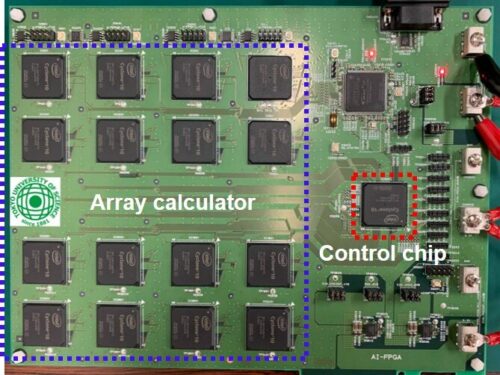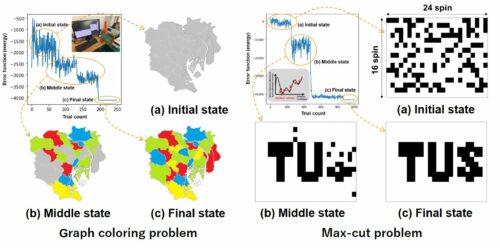Researchers have designed a fully scalable processor that can easily outperform a modern CPU in solving various optimization problems in terms of speed and energy consumption.

The idea behind developing quantum computers was to obtain a way to solve complex and large algorithms and optimization problems at high speed. The problems that cannot be solved using a simple modern CPU. But what if the concept of quantum computers was established in the modern CPU?
Researchers have tried creating annealing processors that mimic the behavior of spins using quantum devices, and have attempted to develop semiconductor devices using large-scale integration (LSI) technology aiming to do the same. In particular, Professor Takayuki Kawahara’s research group at Tokyo University of Science (TUS) in Japan has been making important breakthroughs in this particular field.
They developed a new method in which the calculation of the system’s energy state is divided among multiple fully coupled chips first, forming an “array calculator.” A second type of chip, called “control chip,” then collects the results from the rest of the chips and computes the total energy, which is used to update the values of the simulated spins. “The advantage of our approach is that the amount of data transmitted between the chips is extremely small,” explains Prof. Kawahara. “Although its principle is simple, this method allows us to realize a scalable, fully connected LSI system for solving combinatorial optimization problems through simulated annealing.”

The researchers successfully implemented their approach using commercial FPGA chips, which are widely used programmable semiconductor devices. They built a fully connected annealing system with 384 spins and used it to solve several optimization problems, including a 92-node graph coloring problem and a 384-node maximum cut problem.
Compared with a standard modern CPU modeling the same annealing system, the FPGA implementation was 584 times faster and 46 times more energy efficient when solving the maximum cut problem.








